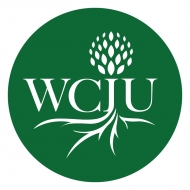Programme Detail: Building Faith Communities (MATUL)
| Language of this entry | English (USA) |
|---|---|
| Name of Programme / Training Resource | Building Faith Communities (MATUL) |
| Type of Training | Individual standalone programme |
| Reference Number | TUL530 |
| Description | This course applies a story-telling approach to the process of entering poor communities and developing holistic poor peoples' churches in ways faithful to the values and goals of the Kingdom of God. Entrance, proclamation, and discipleship are considered in relation to the processes of small-group formation and leadership development. This involves student participation in a mentored church planting team across the first or second semester of the degree. A core assumption of the MATUL program is of the primary and long-term instrumentality of Christian communities of faith, love and hope among the urban poor in seeking sustainable transformation. This course focuses on the multiplication of movements of such congregations as the catalyst and Kingdom foretaste of the social, economic and spiritual realities that over time are to be extended to the larger slum communities, city and nation. |
| Keywords | Urban Poor Church Planting Urban Ministry Missions Multiplication Oral Culture |
| Languages Programme Available in | English (USA) |
| Other Languages | |
| Country and region where programme is available | |
| Area of Ministry and Focus | Mission and Evangelism / Church Planting and Multiplication; Mission and Evangelism / Ministry to Non-Literate People |
| Residential/Non Residential | Non Residential |
| Full-time or Part-time | Full-time |
| Level | Masters |
| Cost Range | From US$1,000 to less than US$10,000 |
| Actual Cost | $540-$1,350 USD (depending on student's national location) |
| Bursaries/scholarships available | |
| Actual Length | 15 weeks |
| Average hours of study per week | 10 |
| Methods of instruction | |
| Percentage of time spent in formal learning (e.g. lectures, structured reading, work-books, etc.) | |
| Percentage of time spent on non-formal skill-based learning (e.g. learning on the job and supervised practice, etc.) | |
| Percentage of time spent in informal unstructured learning (e.g. prayer times, teamwork). | |
| Average number of students who take the programme per year (or, if this is a new programme, the number who can be accommodated) | 0 |
| Prerequisite Programmes | |
| Other Prerequisites | |
| Qualifications gained | |
| Qualifications this programme is part of | |
| Programme Accredited by | Other Accreditation (see below) |
| Other Accrediting Bodies | Distance Education Accrediting Commission (DEAC) |
Copyright © 2024 William Carey International University
